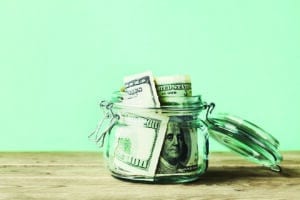The United States has been here before, staring into the deep chasm that divides white and black Americans.
It happened after cities burned in 1967, after Los Angeles erupted with the 1992 acquittal of police officers who beat Rodney King, after the 2014 police killing of Michael Brown in Ferguson, Missouri.
After those upheavals came talk of change – of reforming policing, yes, but also of expanding economic opportunity to black Americans who have been disproportionately left behind in one of the world’s richest countries. Yet despite big pledges and high hopes, economic progress has come slowly, if at all, for black America.
African Americans still earn barely 60 cents for every $1 in white income. They have 10 cents in wealth for every $1 whites own. They remain more than twice as likely to live in poverty. And they’re about as likely to own a home as they were when Richard Nixon was president.
Now, demonstrators are out in the streets again, this time to protest what happened in Minneapolis to George Floyd, dead after a police officer pressed a knee into his neck for eight minutes and 46 seconds.
Recession Hit Blacks Harder
Once again, racial inequality underlies rage and despair, especially because the unrest coincides with an economic and health calamity, one that’s falling hardest, yet again, on African Americans.
A month after the Kerner Commission report, issued in 1968 to call for reform in the wake of the urban unrest of the late ‘60s, Congress passed the Fair Housing Act, meant to eliminate housing discrimination. Assessing the act on its 50th anniversary two years ago, Margery Turner of the Urban Institute wrote that African Americans and other minorities continued to face discrimination, though the “most blatant″ forms of bias had declined.
“We still live in starkly segregated neighborhoods,” she wrote, noting that the typical white Americans lives in a neighborhood that is 75 percent white and 8 percent African American; a typical black American lives in a neighborhood that is 35 percent white and 45 percent black.
The current recession is especially disheartening because African Americans finally seemed to be making headway in the aftermath of the Great Recession of 2007-2009. The unemployment rate for black Americans hit a record low last fall. And black wealth, decimated by the financial crisis of the late 2000s, had in recent years outgrown white wealth.
Then came COVID-19.
“When something goes wrong for all American workers, it’s going to disproportionately affect African Americans, who are often the most fragile in the economy,” said Democratic Sen. Cory Booker of New Jersey.
Wealth-Building Lags Substantially
Black Americans face an even bigger long-term problem than lagging incomes and higher unemployment. They have struggled to build wealth – home equity and investment portfolios – that could be tapped in times of need, used as collateral for loans to start a business or passed on to children.
“Income helps you pay your bills,” said Olugbenga Ajilore, senior economist at the liberal Center for American Program. “Wealth moves you from poverty to the middle class to the upper class.’’
The median black family has wealth of just $17,200 – perhaps enough to buy a car – versus $171,000 for the median white family. The wealth gap persists even for African Americans in the top 10 percent of U.S. incomes: Their wealth comes to $343,160, less than one-fifth of the $1.79 million for whites in the top 10 percent, according to government numbers compiled by the Brookings Institution.
One ongoing culprit was the housing bust of the late 2000s. Commerce Department figures compiled by the Urban Institute show that black homeownership rose from 41.8 percent in 1970 to 47.3 percent in 2000 before being swept away by the financial crisis and the ensuing recession. As of 2015, black homeownership was 41.2 percent – lower than it had been 45 years earlier and far below the 71.1 percent for whites.
In February, researchers at the Brookings Institution reported other reasons for the wealth deficit: African Americans inherit far less money than whites. Even those who become top earners are likelier than whites to fall out of the ranks of the rich. And they are more likely to have to provide financial help to friends and family.
As a Democratic presidential candidate, Booker pushed a plan for “Baby Bonds” to provide $1,000 to every American child at birth. After that, they would receive up to $2,000 a year, depending on their family income. The idea would be to create a nest egg that could eventually be used to finance a college education or buy a home.
Bradley Hardy, a professor in American University’s School of Public Affairs, said that researchers and activists are working on plans like Booker’s to narrow the divide between black and white Americans, between rich and poor.
The current protests could provide momentum for those efforts.
“It’s absolutely an opportunity,” Hardy said. “And, yes, it could be squandered.’’







